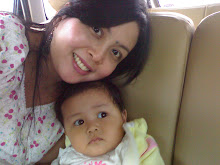| Your little explorer is growing up at such a rapid rate that sometimes it's hard to keep up with her new tricks. One day she'll be unable to get up off her bottom, the next she'll be commando crawling around the living room, and soon you'll turn your back for a second and she'll be standing on her own two feet. That's why it's important to start baby proofing your home now, before you need it. Accidental injuries are one of the most common causes of hospitalization and death for Falls are the most common cause of serious accidental injury to preschoolers, with poisoning, cuts and burns also occurring frequently. Drowning (especially in the bath) and driveway car accidents are other danger areas. Unless you bring your baby up in a bubble, it's impossible to make your home totally baby proof, but there are many things you can do to make safer: • The safest place to change a wriggly baby's nappy is on the floor. If you use a changing table make sure you do up the safety strap every time. Always do up the harness when baby is in the high chair, buggy or car seat. • Tie a knot in plastic shopping bags and store them out of reach of baby. Suffocation is a very real risk. • Once your baby can stand up, move all mobiles or strangulation hazards out of reach of the cot. Keep curtain and blind cords looped up out of reach of children. • Put guards or screens around heaters and fires. Keep lighters and matches in a safe place.
• Install security gates at the top and bottom of stairs. • Lock away all medicines out of reach of inquisitive little hands. Don't forget the bedside cabinet. • Put kiddie’s locks on any kitchen or bathroom cupboards that hold cleaning products or other poisons. Don't put dishwashing powder into the dishwasher until just before you're about to turn it on. • Buy security covers for all your power points or ask an electrician to install a residual current device to cut off the power. • Store knives and scissors up high or in lockable drawers. • Make sure that the kettle cord and other electric cords are tucked away out of reach. Empty the kettle after use. Use the back elements when cooking on the stove and turn pot handles towards the wall. Put your hot cup of tea on a high shelf or bench between sips and don't drink hot drinks while carrying or nursing a child. • Screw freestanding bookshelves and chests of drawers to the wall so they won't topple on your toddler. Freestanding ovens should be attached to the wall with a chain. • Don't forget your handbag, and those of your visitors. They'll often contain pills, sharp objects or things that your child may choke on, so make sure they're kept out of reach. • Check that the water temperature in your home is no higher than 50 degrees Celsius so it doesn't scald your baby. Fill the bath with cold water first, and then top up with hot. Buy a rubber mat for the bottom of the bath and always stay within an arm's length of children while they're in the bath. • Keep the toilet lid down and the bathroom door closed. Buy a nappy bucket with a clip-on lid and lift it into the tub when you're soaking clothes and nappies. • If you have large glass windows or doors, ensure the glass is safety glass and stick stickers or tape across them so your child can easily see whether they're open or closed. • Make sure your front and back door latches lock automatically when the door is closed, and that your child can't unlock them. • Fence off an area of the garden or courtyard so your child can play safely without wandering onto the driveway. Make sure swimming and spa pools are fenced according to regulations. Cover the barbecue and remove any sharp tools. Lock poisons in the garden shed. • Lay bark chips under outdoor play equipment to cushion falls. Trampolines are safer if they're recessed into the ground. • Check that your garden plants aren't poisonous and keep toddlers away from spiky cacti.
• Install smoke alarms in every room and keep a fire extinguisher in the kitchen. • Make a list of emergency phone numbers, such as your doctor, your local A&E and the poisons centre, and pin it on the wall by your phone. • Do a first aid course to learn basic techniques such as mouth-to-mouth and CPR, as well as what to do if your baby chokes, is burned or eats something poisonous - you could save your child's life. Phone 0800 RED CROSS for details. |
HOW TO BABYSAFE YOUR HOME
Labels: little treasures, mom and baby info
Subscribe to:
Post Comments (Atom)

No comments:
Post a Comment